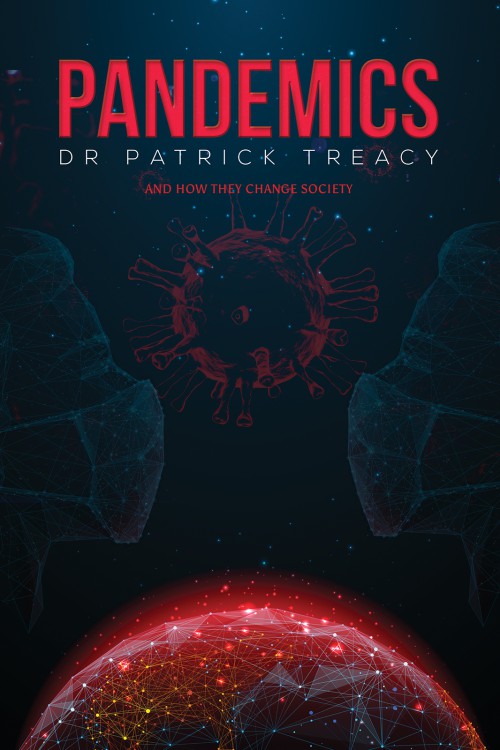
Pandemics
Book Format: Choose an option
Free standard delivery on UK orders over £35
*Available directly from our distributors, click the Available On tab below

Book Format: Choose an option
Free standard delivery on UK orders over £35
*Available directly from our distributors, click the Available On tab below
Dr Treacy was awarded the “Top Aesthetic Practitioner in the World 2019” at the MyFaceMyBody Global Awards (Las Vegas). He won the ‘Doctor of the Year’ UK 2019 (Las Vegas) and ‘Doctor of the Year’ UK and Ireland 2018 at the Safety in Beauty Diamond Award (London). He won the Royal Society of Medicine (London) Research Poster Award 2019. He is among a few doctors in the world to have won the coveted AMEC Trophy three times (Paris 2014 and 2016, Monaco 2019) for varied research relating to the use of stem cells and platelets in treating cancer cachexia and reversing skin necrosis. He won the MyFaceMyBody Trophy in London (2016) for medical research and was Highly Commended (London 2012 and 2013) for studies relating to the use of platelet-rich plasma, growth signalling factors and 633nm red light in both facial rejuvenation and hair transplant. These types of procedures are now popularised and being used by clinicians all around the world. He was given the CCME Medal for “Excellence in contributions to Aesthetic Medicine” (Mexico 2016) and was Highly Commended in “Doctor of the Year” Category (London 2016).
He is recognised as one of the most influential aesthetic practitioners in the world being named for the third time amongst the MyFaceMyBody “Ultimate 100 Global Aesthetic Leaders” (Las Vegas 2019, Los Angeles 2018, London 2017). He received the MyFaceMyBody Specialist Award (London 2018) for research contributions to the field of Aesthetic Medicine. He was awarded a Laureate in Aesthetic Medicine by the Azerbaijani College of Medicine and given the Beauty & Anti-Ageing Trophy (Baku 2017) for contributions to the field of Aesthetic Medicine. He was awarded the 1st AIDA Trophy for his research in Aesthetic Medicine (Abu Dhabi 2017). His research has strongly influenced this specialist area where he has developed global protocols relating to dermal filler complications and wound healing, as well as pioneering techniques for HIV facial lipodystrophy facial endoprostheses and radiosurgery venous thermocoagulation. He won both the “Irish Healthcare Award for Medical Research” (Dublin 2017) and the “British College of Aesthetic Medicine Award for Medical Research” (London 2017).
Dr Treacy was Chairman of the Organising Committee of Royal Society of Medicine (London) Aesthetic Congress 2019, Chairman of the Irish Association of Cosmetic Doctors, and the Irish Representative of the British Association of Cosmetic Medicine. He serves on the editorial boards of five international aesthetic journals. He is author and co-author of many articles in peer-reviewed scientific journals and has contributed to chapters of medical books.
Dr Treacy is a fellow of the Royal Society of Medicine and the Royal Society of Arts (London). He is Chairman of the Ailesbury Humanitarian Foundation and is the driving force behind countless humanitarian efforts that impact the lives of children in communities across Africa, Haiti, and the Third World. To this end, he has opened orphanages in Monrovia, Liberia, and Mirebalais, Haiti. He practices cosmetic medicine in his clinics in Dublin and Cork. He is an advanced aesthetic trainer and has trained over 3,500 doctors and nurses from around the world. He has featured on CNN, Dr Drew, RTÉ, TV3, Sky News, BBC, and Newsweek.
We use cookies on this site to enhance your user experience and for marketing purposes.
By clicking any link on this page you are giving your consent for us to set cookies